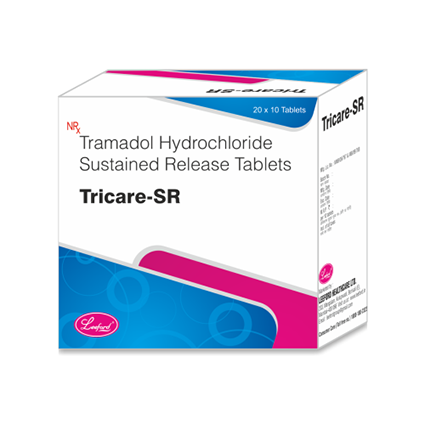Uncategorized
100mg Tramadol Tablets: Uses, Benefits, and Potential Side Effects
100mg Tramadol Tablets, Tramadol is a prescription painkiller commonly used to manage moderate to severe pain. Available in different formulations, 100mg tramadol tablets are a popular option for those who need consistent relief from acute or chronic pain. Whether it’s for pain after surgery, injury, or a chronic condition, tramadol is widely prescribed due to its effectiveness and relatively lower risk of addiction compared to stronger opioids.
What are 100mg Tramadol Tablets?
100mg tramadol tablets contain tramadol hydrochloride, a synthetic opioid analgesic that works by affecting the brain’s perception of pain. Unlike other opioids, tramadol also influences serotonin and norepinephrine, two neurotransmitters that help regulate mood and pain sensation. This dual-action makes tramadol effective not only in reducing pain but also in enhancing the body’s response to discomfort.
How Do 100mg Tramadol Tablets Work?
Tramadol works by binding to opioid receptors in the brain and spinal cord. These receptors are responsible for transmitting pain signals to the brain. By attaching to these receptors, tramadol changes how your brain perceives pain, offering relief. In addition, the drug’s influence on serotonin and norepinephrine helps in managing pain and boosting mood, which is particularly helpful for those dealing with long-term pain.
When are 100mg Tramadol Tablets Prescribed?
Doctors prescribe 100mg tramadol tablets for individuals who require more substantial pain relief than over-the-counter medications can provide. These tablets are typically used for:
- Post-operative pain: After surgeries like joint replacement or abdominal procedures, tramadol is prescribed to control severe pain.
- Chronic pain conditions: People suffering from conditions like osteoarthritis, fibromyalgia, or lower back pain may be prescribed 100mg tramadol tablets to manage long-term pain.
- Injury-related pain: Tramadol is often prescribed after severe injuries such as fractures or muscle strains.
Dosage Guidelines for 100mg Tramadol Tablets
When using 100mg tramadol tablets, it’s essential to follow the prescribed dosage and schedule provided by your healthcare provider. The typical instructions for 100mg tablets may include:
- Frequency: Most patients are advised to take one 100mg tablet every 12 hours, though your doctor may adjust this based on your pain level and response to the medication.
- Do not exceed the recommended dose: Taking more than prescribed can lead to overdose or increase the risk of serious side effects.
- Swallow tablets whole: Tramadol tablets should not be crushed or chewed, as this can release the entire dose at once and increase the risk of side effects.
Benefits of 100mg Tramadol Tablets
- Effective Pain Relief
One of the primary benefits of 100mg tramadol tablets is their ability to provide significant relief for moderate to severe pain. This makes it a versatile option for patients dealing with a variety of pain conditions. - Longer Duration of Action
The 100mg dose often provides pain relief that lasts longer, reducing the need for more frequent dosing compared to lower doses. - Reduced Risk of Addiction
While tramadol is still an opioid, it is considered to have a lower potential for addiction and abuse than stronger opioids like morphine or oxycodone. This makes it a safer option for those who require long-term pain management.
Common Side Effects of 100mg Tramadol Tablets
As with any medication, there are potential side effects associated with 100mg tramadol tablets. Most side effects are mild, but some may require medical attention. Common side effects include:
- Dizziness and Drowsiness
Many people experience feelings of dizziness or sleepiness when taking tramadol, especially at higher doses like 100mg. These effects are due to tramadol’s impact on the central nervous system. - Nausea and Vomiting
Nausea is another common side effect, particularly when first starting the medication. Taking tramadol with food may help reduce this. - Constipation
Like other opioids, tramadol can slow down bowel movements, leading to constipation. Drinking plenty of water and consuming a fiber-rich diet can help mitigate this effect. - Headaches
Some individuals may experience headaches while taking tramadol. If headaches persist or worsen, it’s important to consult your doctor.
Serious Side Effects of 100mg Tramadol Tablets
While many people tolerate 100mg tramadol tablets well, there are some serious side effects that require immediate medical attention:
- Seizures
Tramadol can lower the seizure threshold, meaning it increases the risk of seizures, particularly in individuals with a history of epilepsy or those taking medications that also lower the seizure threshold. - Respiratory Depression
In higher doses, tramadol can slow down breathing, especially when combined with other medications that affect the central nervous system. If you notice shallow or slow breathing, it’s crucial to seek emergency medical care. - Serotonin Syndrome
Tramadol’s effect on serotonin levels can, in rare cases, lead to serotonin syndrome. Symptoms include confusion, agitation, rapid heart rate, sweating, and muscle stiffness. This condition is potentially life-threatening and requires immediate medical intervention. - Risk of Dependence
While tramadol has a lower risk of addiction than other opioids, it is still possible to become dependent on the medication, especially with long-term use. Always follow your doctor’s dosing instructions and avoid taking more than prescribed.
Who Should Avoid 100mg Tramadol Tablets?
While 100mg tramadol tablets are safe for many individuals, certain groups should avoid or use them with caution:
- Individuals with Seizure Disorders: As tramadol increases the risk of seizures, those with epilepsy or a history of seizures should avoid using this medication without close supervision.
- People with Respiratory Issues: Conditions like asthma, sleep apnea, or other breathing disorders can be worsened by tramadol’s effect on the respiratory system.
- Those Taking Other Medications: Tramadol can interact with a variety of medications, including antidepressants and other opioids. Always inform your healthcare provider of all the medications you are taking before starting tramadol.
Conclusion
100mg tramadol tablets are an effective solution for managing moderate to severe pain, offering long-lasting relief and convenience with fewer doses. While they can significantly improve quality of life for those suffering from chronic or acute pain, it’s important to use them responsibly and be aware of potential side effects, both common and serious.
If you’ve been prescribed 100mg tramadol tablets, always follow your doctor’s instructions and report any unusual symptoms to your healthcare provider. With the right guidance and precautions, tramadol can be an essential part of managing pain effectively.

